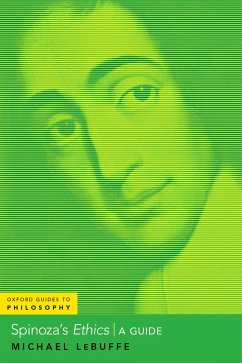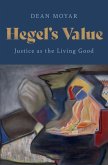Baruch Spinoza's
Ethics was published in 1677 just after his death. Along with Descartes's
Meditations (1641) and Leibniz's mature essays (1685-1714) the
Ethics is regarded as among the most important philosophical work of continental Early Modern Europe. In this guide, Michael LeBuffe follows the Ethics closely and helps readers to understand Spinoza's masterpiece for themselves. The
Ethics is a hugely ambitious work that offers strong, controversial views on almost every aspect of philosophy. In a geometrical style, in which propositions build upon definitions and axioms, Spinoza contends that there is only one substance, God, and that everything that exists, including God and human beings, is subject to absolute necessity. Nevertheless, he also defends rich theories of human action and ethics. Spinoza maintains that we can and should work to overcome the harmful influence of passion and enjoy salvation and blessedness. LeBuffe includes an introduction designed to supply first time readers with enough background to study the text productively. He then devotes a chapter to each of the
Ethics' five parts: on God, mind, the affects or emotions, human bondage, and human freedom. The guide focuses on one manageable part of Spinoza's dense argument at a time, pausing frequently to raise and consider questions for further research. This accessible guide to the
Ethics will help readers to understand the challenging text and to develop their own sophisticated interpretations of Spinoza.
Dieser Download kann aus rechtlichen Gründen nur mit Rechnungsadresse in A, B, BG, CY, CZ, D, DK, EW, E, FIN, F, GR, HR, H, IRL, I, LT, L, LR, M, NL, PL, P, R, S, SLO, SK ausgeliefert werden.









